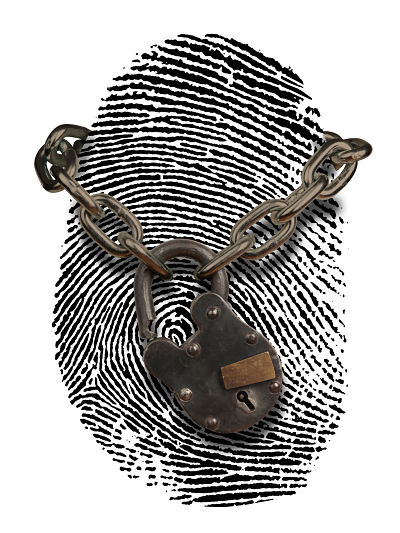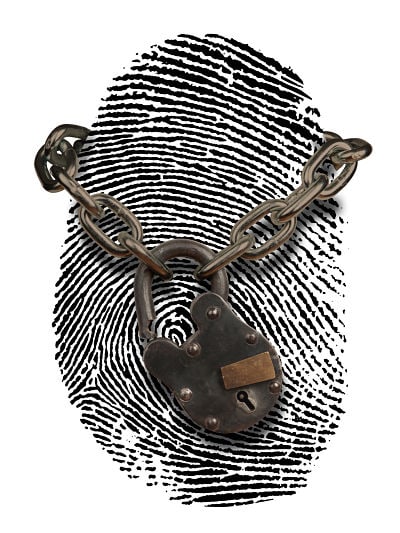 Special Equifax Security Alert Added Below
Special Equifax Security Alert Added Below
Cybersecurity Part 3 – by Eric Kies
I’m on my way home from visiting our Fresno office, and the plane touches down in Denver. Unfortunately, due to a late departure from Fresno, I’ve already missed my flight back to Moline. The only positive aspect of this lengthy layover is that I’ll have about five hours to process meeting notes, catch up on email, and work on some projects. As I settle in to my work, my heart sinks as I listen to my voice mail.
My bank had called and left a message for me while I was on the plane. Someone had gotten hold of my credit card info and had run through a fraudulent charge. My credit card had been shut down.
I called the bank and spoke to them about it, and fortunately they had caught it right away. Evidently, a “test charge” of just over a dollar had been run through to see if it worked. If it does, then the purchases by the offending party begin. A new card was on its way, and I would have it within a week.
This began a series of events that chewed up significant time and energy, all because somewhere and somehow a criminal had gotten hold of a few pieces of information, probably from a retailer.
You are a victim of identity theft when someone uses your personal information (i.e., your name, driver’s license, or social security number, etc.) without your approval. Many people think of identity theft primarily as the misuse of credit cards, as in my case. However, there’s much more at stake with this type of fraud than merely a few fraudulent charges and potential damage to your credit score (though that is important too, of course). Your savings, your reputation, your employment history, and even your access to health care can be at risk.
Once you become an identity theft victim, it is of little comfort to know you are not alone. More than 15+ million U.S. residents have their identities used fraudulently yearly. While it may be tempting to stop and contemplate how and when you became a victim, it is time for immediate action. To minimize any losses or liability on your part, here’s what you should do.
1. Assess the Damage
Identity theft is the type of crime that can do the most damage when it goes unnoticed. Consequently, once you discover that someone is misusing your personal information, take a moment to assess what type of identity theft has occurred (i.e., tax, medical, wage, credit, etc.). Then grab your list of emergency phone numbers and web sites and begin contacting your accounts one-by-one. If you have not created a document for just such an eventuality, please do so today!
2. Change Your Account Passwords
Is your computer infected with a computer virus or a malicious software program? Your email and other online accounts can be the gateways through which hackers stealthily acquire your personal information. Change the PINS and/or passwords for your online accounts—both your financial and non-financial accounts. This is a fast and easy means of preventing hackers from mining your online accounts for even more information about you.
3. Contact the Companies Involved
Notify the fraud department of the bank, credit card company, or agency where the fraud occurred immediately. Explain that someone has stolen your identity and request that your account be frozen or closed until further notice. Next, change your log-ins, PINS, and passwords on these accounts too—particularly if you have used the same password(s) with more than one account.
4. Add a Fraud Alert to Your Credit Report
Contact one of the three national credit-reporting agencies below. It is the policy of each agency to notify the other two for you. You will qualify automatically for a free credit report from all three agencies. Be sure to request them and review them thoroughly for errors, unauthorized accounts, or unrecognized activities. You may also be offered the option to place a freeze on your files. It is advisable for you to do so even if a small fee is involved.
- Experian (888-397-3742): https://www.experian.com/freeze/center.html
- Equifax (888-766-0008): https://www.freeze.equifax.com/Freeze/jsp/SFFPersonalIDInfo.jsp
- TransUnion (800-6807289): https://freeze.transunion.com/sf/securityFreeze/landingPage.jsp
5. Contact the Federal Trade Commission
 Complete the online form at www.identitytheft.gov or call 1-877-438-4338. Include as many details as possible. Based on the information you enter, IdentityTheft.gov will create your Identity Theft Report and recovery plan. Your identity theft report proves to businesses that someone stole your identity. It also guarantees you certain rights.
Complete the online form at www.identitytheft.gov or call 1-877-438-4338. Include as many details as possible. Based on the information you enter, IdentityTheft.gov will create your Identity Theft Report and recovery plan. Your identity theft report proves to businesses that someone stole your identity. It also guarantees you certain rights.
6. Protect your Social Security number
If your social security number was or may have been compromised contact the Social Security Administration (800-269-0271) and the Internal Revenue Service (800-829-0433). It’s important to talk to the SSA and the IRS if you believe your Social Security number is compromised, even if you do not yet see any evidence of financial fraud. A thief could be planning to swipe your tax refund, or to obtain employment or health care in your name.
7. Notify the Police
While calling law enforcement to report identity fraud may seem like overkill, don’t be fooled. Identity theft is a serious crime. Just ask any victim. By reporting the matter to police, you’ll receive a case file number that you can use to document the crime and bolster your case with credit and/or reporting agencies.
This list of steps to recover from identity theft is by no means complete. However, you’ll find that the resources provided here will direct you to others that can prove invaluable depending upon the type of fraud that occurred. In closing, as mentioned earlier, if you haven’t already done so, create a list (electronic and paper) of emergency numbers and keep it in a safe place where you can access them in an emergency. It might be a good idea to keep this article along with your other important papers.
I sincerely hope you never need it.
UPDATED ALERT: RECENT EQUIFAX BREACH (added 9/8/2017)
Equifax one of the largest credit reporting companies was hacked and 143 million people’s data may have been compromised. There is a link to the Equifax website (below) to see if your info was affected.
If you are affected then Equifax is offering a free year-long identity theft and credit monitoring program for a year. They will provide an enrollment date to return to the website to enroll in this program if desired.
Eric Kies, CFP®, is a Partner/President/COO in the Quad Cities office of The Planning Center, a fee-only financial planning and wealth management firm.
Email him at: eric@theplanningcenter.com.







